The US has never produced enough softwood lumber to satisfy its own demand. …The US represents roughly 27% of global softwood lumber demand, but only 20% of global supply — a structural gap that requires large-scale imports. Canada remains the dominant source, supplying about 80% of US imports over the last decade and projected to supply more than 22% in 2025, according to a new report. Despite recurring political claims that the US can become self-sufficient in lumber production, the report concludes that the scale of change required makes that unrealistic. To replace the ~25 million m. of imports currently entering the market each year, the country would need to build around 75 new, modern sawmills. That would require capital investment exceeding 12x the total US sawmill investment over the past fifteen years — and would take more than a decade under ideal conditions. …Proposals to increase logging on federal lands are also unlikely to meaningfully reduce import dependence.


 TORONTO – United Steelworkers union (USW) National Director Marty Warren issued the following statement on the federal Budget 2025: This budget recognizes something workers have been saying for years. Canada needs to build more at home and expand its industrial capacity. The commitments on Buy-Canadian procurement, industrial strategy and trade enforcement are important steps forward and reflect priorities Steelworkers have been advocating for across the country. There are meaningful investments in steel, forestry, critical minerals and manufacturing – sectors that support thousands of good union jobs and anchor regional economies and communities. We welcome tools that can help stabilize supply chains and strengthen domestic production. …Buy-Canadian rules must be enforced, industrial dollars must translate into real jobs and production on the ground, and forestry and industrial communities need long-term certainty, not temporary relief. We see steps in the right direction. Now it’s about follow-through.
TORONTO – United Steelworkers union (USW) National Director Marty Warren issued the following statement on the federal Budget 2025: This budget recognizes something workers have been saying for years. Canada needs to build more at home and expand its industrial capacity. The commitments on Buy-Canadian procurement, industrial strategy and trade enforcement are important steps forward and reflect priorities Steelworkers have been advocating for across the country. There are meaningful investments in steel, forestry, critical minerals and manufacturing – sectors that support thousands of good union jobs and anchor regional economies and communities. We welcome tools that can help stabilize supply chains and strengthen domestic production. …Buy-Canadian rules must be enforced, industrial dollars must translate into real jobs and production on the ground, and forestry and industrial communities need long-term certainty, not temporary relief. We see steps in the right direction. Now it’s about follow-through. On August 5, 2025,
On August 5, 2025, 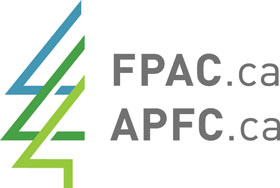 Forest Products Association of Canada put forward 19 practical recommendations for Budget 2025 focusing on three areas where immediate federal action can make a tangible difference: Smarter regulation to improve competitiveness; Clear signals to improve investment confidence; and Stronger trade and market access measures to protect Canadian jobs. …Hundreds of rural and northern communities depend on a strong forest sector. The Government of Canada’s $1.25 billion softwood package is welcome support for the immediate term, but finding a path to a more certain trading arrangement with the United States remains the Canadian forest sector’s top priority. …The inclusion of Investment Tax Credits (ITCs) for biomass projects in Budget 2025 is a welcome, long-overdue step for Canada’s forest sector. …With the right tax measures in place, these projects can modernize mill operations, sustain and grow jobs in rural and northern communities, and strengthen Canada’s position as a secure producer of renewable energy.
Forest Products Association of Canada put forward 19 practical recommendations for Budget 2025 focusing on three areas where immediate federal action can make a tangible difference: Smarter regulation to improve competitiveness; Clear signals to improve investment confidence; and Stronger trade and market access measures to protect Canadian jobs. …Hundreds of rural and northern communities depend on a strong forest sector. The Government of Canada’s $1.25 billion softwood package is welcome support for the immediate term, but finding a path to a more certain trading arrangement with the United States remains the Canadian forest sector’s top priority. …The inclusion of Investment Tax Credits (ITCs) for biomass projects in Budget 2025 is a welcome, long-overdue step for Canada’s forest sector. …With the right tax measures in place, these projects can modernize mill operations, sustain and grow jobs in rural and northern communities, and strengthen Canada’s position as a secure producer of renewable energy. The head of the Forest Products Association of Canada wants the upcoming federal budget to help “future-proof” the forestry sector while tariffs and duties pile up, as some mills have already been forced to curtail production or close. “Let’s not waste a crisis,” said Derek Nighbor, FPAC’s president and CEO. “Let’s use this as a moment to future-proof and future-ready our industry, and to support our workers and ensure that some of these mills can operate, for decades to come.” …When the budget is shared Nov. 4, Nighbor will be looking for more details on spending to help the forestry industry diversify its export markets. He also expects to learn more about spending on innovation to help retool mills and support a growing, mass timber, prefabricated modular homebuilding industry. …Lana Payne, Unifor’s national president, said she also wants to see a made-in-Canada housing strategy that relies on Canadian lumber.
The head of the Forest Products Association of Canada wants the upcoming federal budget to help “future-proof” the forestry sector while tariffs and duties pile up, as some mills have already been forced to curtail production or close. “Let’s not waste a crisis,” said Derek Nighbor, FPAC’s president and CEO. “Let’s use this as a moment to future-proof and future-ready our industry, and to support our workers and ensure that some of these mills can operate, for decades to come.” …When the budget is shared Nov. 4, Nighbor will be looking for more details on spending to help the forestry industry diversify its export markets. He also expects to learn more about spending on innovation to help retool mills and support a growing, mass timber, prefabricated modular homebuilding industry. …Lana Payne, Unifor’s national president, said she also wants to see a made-in-Canada housing strategy that relies on Canadian lumber.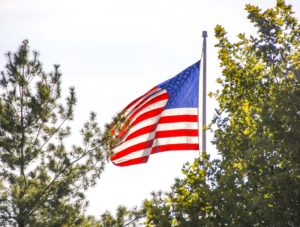 WASHINGTON — Donald Trump’s tariff agenda is set to face a major legal hurdle in the US Supreme Court this week but no matter the ruling, it will not spare Canada from all of the president’s devastating duties. The US Supreme Court will hear arguments Wednesday from businesses and states that say Trump’s use of a national security statute — the International Emergency Economic Powers Act of 1977 — to hit nearly every nation with tariffs is illegal. The hearing will combine two cases: one pushing back on what are usually referred to as Trump’s reciprocal tariffs and the other which also argues against the fentanyl-related duties on Canada, Mexico and China. It will not impact Trump’s expanding use of tariffs under Section 232 of the Trade Expansion Act of 1962. …Carlo Dade at the University of Calgary’s School of Public Policy, said no matter the outcome of the hearing, Canada will be facing tariffs.
WASHINGTON — Donald Trump’s tariff agenda is set to face a major legal hurdle in the US Supreme Court this week but no matter the ruling, it will not spare Canada from all of the president’s devastating duties. The US Supreme Court will hear arguments Wednesday from businesses and states that say Trump’s use of a national security statute — the International Emergency Economic Powers Act of 1977 — to hit nearly every nation with tariffs is illegal. The hearing will combine two cases: one pushing back on what are usually referred to as Trump’s reciprocal tariffs and the other which also argues against the fentanyl-related duties on Canada, Mexico and China. It will not impact Trump’s expanding use of tariffs under Section 232 of the Trade Expansion Act of 1962. …Carlo Dade at the University of Calgary’s School of Public Policy, said no matter the outcome of the hearing, Canada will be facing tariffs. VANCOUVER — Politicians from B.C. and Ottawa will meet in Vancouver today for a forestry summit on how to prop up the industry in the face of American fees and tariffs topping 50 per cent. Federal politicians including Dominic LeBlanc, the minister responsible for Canada-U.S. trade, along with B.C. Premier David Eby and his forests and jobs ministers, are set to discuss ways to support workers and businesses being hammered by the increased fees. In September, the Americans imposed anti-dumping and countervailing duties on Canadian companies ranging from 26 per cent to more than 47 per cent, and then added another 10 per cent last month, claiming Canada’s industry is a U.S. national security threat. B.C.’s goal for the summit is to push for more federal help for the industry that employs tens of thousands of workers in the province. The softwood lumber dispute has been a friction point for decades.
VANCOUVER — Politicians from B.C. and Ottawa will meet in Vancouver today for a forestry summit on how to prop up the industry in the face of American fees and tariffs topping 50 per cent. Federal politicians including Dominic LeBlanc, the minister responsible for Canada-U.S. trade, along with B.C. Premier David Eby and his forests and jobs ministers, are set to discuss ways to support workers and businesses being hammered by the increased fees. In September, the Americans imposed anti-dumping and countervailing duties on Canadian companies ranging from 26 per cent to more than 47 per cent, and then added another 10 per cent last month, claiming Canada’s industry is a U.S. national security threat. B.C.’s goal for the summit is to push for more federal help for the industry that employs tens of thousands of workers in the province. The softwood lumber dispute has been a friction point for decades.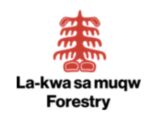 Campbell River, BC — La-kwa sa muqw Forestry Limited Partnership (LKSM) is ready to sit down at the bargaining table with the USW at any time, and has been ready throughout this strike, which it has made clear many times to the USW. However the USW has repeatedly refused to do so, as recently as October 24. Despite repeated invitations from LKSM, the USW has also declined both meaningful negotiations and mediation to assist the bargaining process, unnecessarily prolonging this months-long strike. “LKSM’s First Nations shareholders are dismayed and extremely frustrated by the provincial government’s failure to help both parties to make progress through the appointment of a mediator, especially given the hardships the forestry industry is facing right now,” says Nanwakolas Council President Dallas Smith. “Mediation is an opportunity to bring the parties together …and yet BC still has failed to appoint a mediator after all this time.”
Campbell River, BC — La-kwa sa muqw Forestry Limited Partnership (LKSM) is ready to sit down at the bargaining table with the USW at any time, and has been ready throughout this strike, which it has made clear many times to the USW. However the USW has repeatedly refused to do so, as recently as October 24. Despite repeated invitations from LKSM, the USW has also declined both meaningful negotiations and mediation to assist the bargaining process, unnecessarily prolonging this months-long strike. “LKSM’s First Nations shareholders are dismayed and extremely frustrated by the provincial government’s failure to help both parties to make progress through the appointment of a mediator, especially given the hardships the forestry industry is facing right now,” says Nanwakolas Council President Dallas Smith. “Mediation is an opportunity to bring the parties together …and yet BC still has failed to appoint a mediator after all this time.”

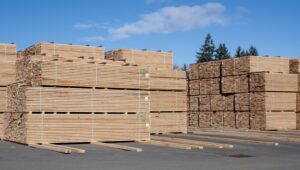 Politicians from BC and Ottawa met in Vancouver Monday for a forestry summit, where they agreed to create a working group on supporting the industry in the face of ever-increasing U.S. fees and tariffs. …Speaking after the forestry summit on Monday, he said the federal government’s commitment to a working group with the province felt “very heartening.” Kim Haakstad, the president of the B.C. Council of Forest Industries, said in a statement that the group is pleased the governments are working together to keep people working — even when markets are challenging. Haakstad said the working group should also include the industry to help focus on keeping mills open, which means prioritizing a new softwood lumber deal and accelerating the rollout of the $1.2 billion from federal government.
Politicians from BC and Ottawa met in Vancouver Monday for a forestry summit, where they agreed to create a working group on supporting the industry in the face of ever-increasing U.S. fees and tariffs. …Speaking after the forestry summit on Monday, he said the federal government’s commitment to a working group with the province felt “very heartening.” Kim Haakstad, the president of the B.C. Council of Forest Industries, said in a statement that the group is pleased the governments are working together to keep people working — even when markets are challenging. Haakstad said the working group should also include the industry to help focus on keeping mills open, which means prioritizing a new softwood lumber deal and accelerating the rollout of the $1.2 billion from federal government.


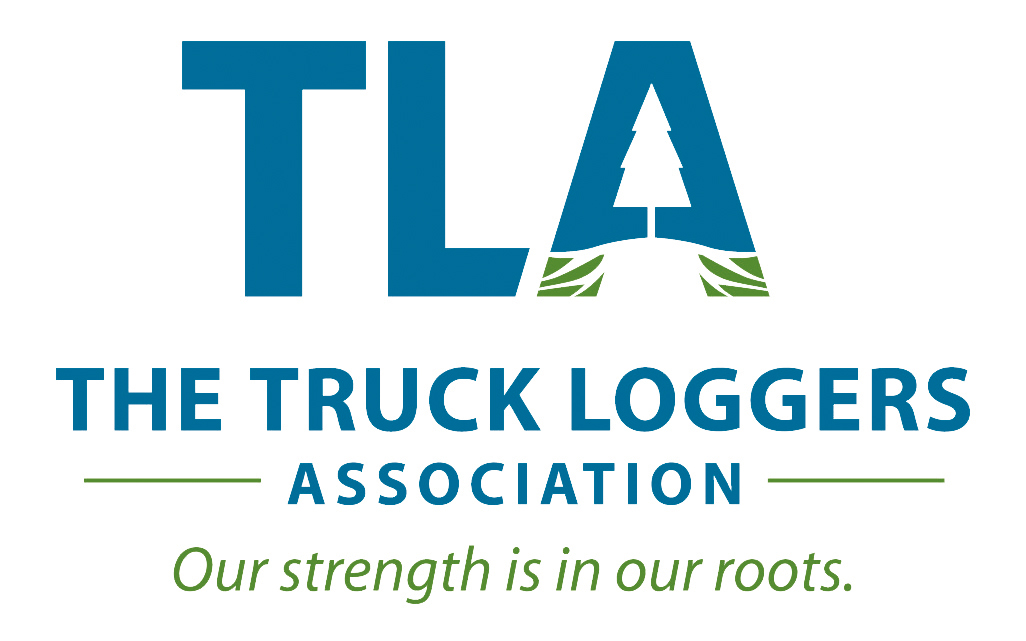 Following today’s BC Forestry Summit, the TLA was pleased to hear the encouraging remarks from Premier Eby and the Honourable Dominic LeBlanc, Federal Minister of Intergovernmental Affairs, Infrastructure and Communities. Their commitment to … addressing softwood lumber tariffs is an important step toward ensuring the long-term stability and competitiveness of Canada’s forest sector. As the backbone of most BC communities, the TLA appreciates today’s much needed recognition that forestry remains critical to both BC and Canada’s economies. The TLA emphasizes the importance of ensuring that a portion of the federal government’s $700 million in funding directly supports forestry’s timber harvesting contractors. …this support can strengthen a sustainable and more certain forest industry. BC was once the lowest cost lumber producer in North America and is now amongst the highest… There is an urgent need to improve certainty by diversifying markets, enhancing access to fibre, and reducing costs to ensure the industry’s long-term viability and global competitiveness.
Following today’s BC Forestry Summit, the TLA was pleased to hear the encouraging remarks from Premier Eby and the Honourable Dominic LeBlanc, Federal Minister of Intergovernmental Affairs, Infrastructure and Communities. Their commitment to … addressing softwood lumber tariffs is an important step toward ensuring the long-term stability and competitiveness of Canada’s forest sector. As the backbone of most BC communities, the TLA appreciates today’s much needed recognition that forestry remains critical to both BC and Canada’s economies. The TLA emphasizes the importance of ensuring that a portion of the federal government’s $700 million in funding directly supports forestry’s timber harvesting contractors. …this support can strengthen a sustainable and more certain forest industry. BC was once the lowest cost lumber producer in North America and is now amongst the highest… There is an urgent need to improve certainty by diversifying markets, enhancing access to fibre, and reducing costs to ensure the industry’s long-term viability and global competitiveness. VANCOUVER — British Columbia Premier David Eby says the province is walking back plans to run anti-tariff advertisements in the United States after a meeting with federal officials about the province’s beleaguered forestry sector. Eby said Monday that B.C. won’t be running the ads “by ourselves,” in favour of aligning with the federal government in its dealings with the U.S. government under President Donald Trump. “The unfair and unjustified tariffs imposed by the White House on this sector directly threatens thousands of jobs right across the country,” Eby said at a news conference after a forestry summit meeting with federal officials and others. …”Minister LeBlanc didn’t have to ask,” Eby answered Monday when a reporter asked LeBlanc if he requested that the B.C. government hold off on its anti-tariff advertising campaign. “I knew that it was a source of anxiety for many people, including potentially the federal government.”
VANCOUVER — British Columbia Premier David Eby says the province is walking back plans to run anti-tariff advertisements in the United States after a meeting with federal officials about the province’s beleaguered forestry sector. Eby said Monday that B.C. won’t be running the ads “by ourselves,” in favour of aligning with the federal government in its dealings with the U.S. government under President Donald Trump. “The unfair and unjustified tariffs imposed by the White House on this sector directly threatens thousands of jobs right across the country,” Eby said at a news conference after a forestry summit meeting with federal officials and others. …”Minister LeBlanc didn’t have to ask,” Eby answered Monday when a reporter asked LeBlanc if he requested that the B.C. government hold off on its anti-tariff advertising campaign. “I knew that it was a source of anxiety for many people, including potentially the federal government.”

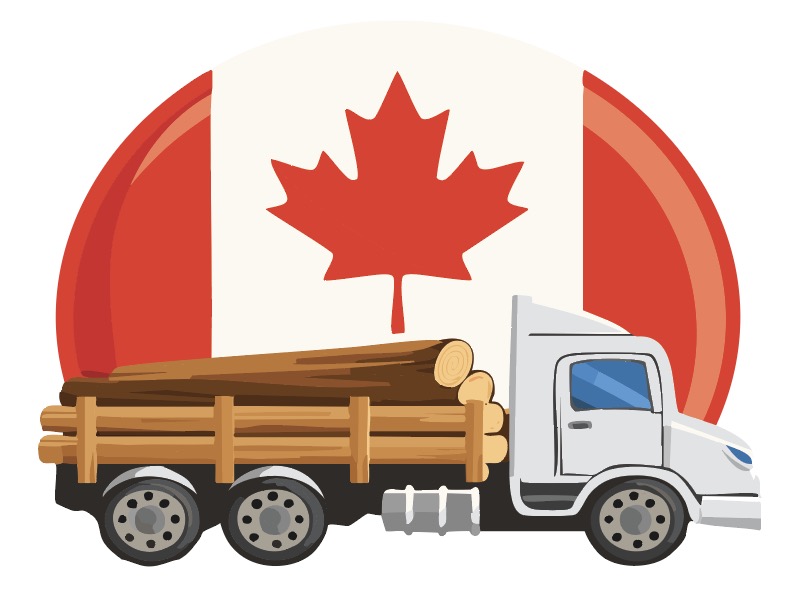 Was Premier David Eby ever really serious about running anti-American softwood lumber ads? Maybe, briefly, back when nobody cared about $100,000 worth of sponsored content promoting B.C. wood products. But after Ontario’s ads blew up Canada-U.S. trade talks, Eby seemed to realize the true value of his campaign — namely, in not running it at all. On Monday, Eby all but admitted his tough talk over the past 10 days about the urgent need to educate Americans on B.C.’s softwood sector was just leverage to score a meeting with federal cabinet ministers. …The premier had spent several weeks loudly proclaiming that these softwood ads were essential, and that they would go forward regardless of what the federal government thought. …In exchange for backing off his threat, Eby hyped up a “softwood summit” on Monday his government called the “turning point in our fight for forestry workers.”
Was Premier David Eby ever really serious about running anti-American softwood lumber ads? Maybe, briefly, back when nobody cared about $100,000 worth of sponsored content promoting B.C. wood products. But after Ontario’s ads blew up Canada-U.S. trade talks, Eby seemed to realize the true value of his campaign — namely, in not running it at all. On Monday, Eby all but admitted his tough talk over the past 10 days about the urgent need to educate Americans on B.C.’s softwood sector was just leverage to score a meeting with federal cabinet ministers. …The premier had spent several weeks loudly proclaiming that these softwood ads were essential, and that they would go forward regardless of what the federal government thought. …In exchange for backing off his threat, Eby hyped up a “softwood summit” on Monday his government called the “turning point in our fight for forestry workers.”
 Uh oh. BC Premier David Eby is about to launch his own anti-tariff advertising campaign aimed at US citizens. Eby said this week he expects ads targeting US lumber penalties to begin airing some time in November. It’s safe to say they will not mention Ronald Reagan. …Eby’s teaser for the BC ad campaign shows stacks of Canadian lumber, overlaid with a simplified graph of “winners” and “losers,” terms US President Trump likes to use. In these ads, the losers are American consumers and the Canadian lumber industry, and the winners are the Russians. “It’s important to speak directly to Americans looking to build homes or renovate,” Eby said. …Eby’s got a better case on lumber trade than Ford has on cars and trucks. US home builders have acknowledged that they can’t produce enough lumber for domestic needs, despite Trump’s claim that the US has plenty of trees.
Uh oh. BC Premier David Eby is about to launch his own anti-tariff advertising campaign aimed at US citizens. Eby said this week he expects ads targeting US lumber penalties to begin airing some time in November. It’s safe to say they will not mention Ronald Reagan. …Eby’s teaser for the BC ad campaign shows stacks of Canadian lumber, overlaid with a simplified graph of “winners” and “losers,” terms US President Trump likes to use. In these ads, the losers are American consumers and the Canadian lumber industry, and the winners are the Russians. “It’s important to speak directly to Americans looking to build homes or renovate,” Eby said. …Eby’s got a better case on lumber trade than Ford has on cars and trucks. US home builders have acknowledged that they can’t produce enough lumber for domestic needs, despite Trump’s claim that the US has plenty of trees.












 KINGWOOD, W.Va. — Multiple volunteer fire departments and emergency medical services responded Wednesday night to a fire at Appalachian Wood Pellets that affected multiple buildings. Officials reported the blaze has been contained, and no injuries were reported. Preston County Office of Emergency Management Director Justin Wolfe said initial reports of the blaze at 383 Mill Road were received at 11:33 p.m. Wednesday. …Initial reports noted that crews mounted an attack against the blaze, with additional fire departments being requested for assistance. Based on reports, the fire affected structures outside the main plant, including an open trailer with material, an open roofed storage structure and a belt-to-silo apparatus, and encroached on a maintenance building.
KINGWOOD, W.Va. — Multiple volunteer fire departments and emergency medical services responded Wednesday night to a fire at Appalachian Wood Pellets that affected multiple buildings. Officials reported the blaze has been contained, and no injuries were reported. Preston County Office of Emergency Management Director Justin Wolfe said initial reports of the blaze at 383 Mill Road were received at 11:33 p.m. Wednesday. …Initial reports noted that crews mounted an attack against the blaze, with additional fire departments being requested for assistance. Based on reports, the fire affected structures outside the main plant, including an open trailer with material, an open roofed storage structure and a belt-to-silo apparatus, and encroached on a maintenance building. Weyerhaeuser will use $102 million of proceeds from a municipal bond sale to help finance the construction of solid waste disposal facilities at its engineered wood plant in Arkansas. The Resource Recovery Revenue Bonds Series 2025 will be sold by the Arkansas Development Finance Authority, which will then lend the money to the timber and forest products company. …The bonds are special and limited revenue obligations of the issuer. Weyerhaeuser will use the money to help finance a portion of the costs of the acquisition, construction, equipping and installation of solid waste disposal facilities at its TimberStrand plant under construction near the city of Monticello in Drew County. Proceeds will also be used to pay the costs of bond issuance. TimberStrand is a brand name for a type of engineered wood product called laminated strand lumber and is manufactured by Weyerhaeuser.
Weyerhaeuser will use $102 million of proceeds from a municipal bond sale to help finance the construction of solid waste disposal facilities at its engineered wood plant in Arkansas. The Resource Recovery Revenue Bonds Series 2025 will be sold by the Arkansas Development Finance Authority, which will then lend the money to the timber and forest products company. …The bonds are special and limited revenue obligations of the issuer. Weyerhaeuser will use the money to help finance a portion of the costs of the acquisition, construction, equipping and installation of solid waste disposal facilities at its TimberStrand plant under construction near the city of Monticello in Drew County. Proceeds will also be used to pay the costs of bond issuance. TimberStrand is a brand name for a type of engineered wood product called laminated strand lumber and is manufactured by Weyerhaeuser. 

 Arkansas’ timber industry, like Arkansas’ agriculture industry, is in trouble. The causes of the trouble are various, but one cause stands out for both: the Trump administration’s trade war. In October, Arkansas House Speaker Brian Evans, R-Cabot, joined the speakers of the Alabama, Georgia, Florida and South Carolina houses of representatives urging Congress to move to relieve “an industry in crisis.” “Under current US trade policy, products and shipments from US exporters are becoming stuck en route to their final destination due to immediately imposed tariffs,” the letter said. The state’s forestry sector supports more than 50,000 jobs and contributes about $6.1 billion to Arkansas’ economy, more than 4% of the state’s GDP. “The trade war has impacted our ability to export hardwood logs out of Arkansas,” Matthew Pelkki, at the University of Arkansas at Monticello, said. [to access the full story an Arkansas Business subscription is required]
Arkansas’ timber industry, like Arkansas’ agriculture industry, is in trouble. The causes of the trouble are various, but one cause stands out for both: the Trump administration’s trade war. In October, Arkansas House Speaker Brian Evans, R-Cabot, joined the speakers of the Alabama, Georgia, Florida and South Carolina houses of representatives urging Congress to move to relieve “an industry in crisis.” “Under current US trade policy, products and shipments from US exporters are becoming stuck en route to their final destination due to immediately imposed tariffs,” the letter said. The state’s forestry sector supports more than 50,000 jobs and contributes about $6.1 billion to Arkansas’ economy, more than 4% of the state’s GDP. “The trade war has impacted our ability to export hardwood logs out of Arkansas,” Matthew Pelkki, at the University of Arkansas at Monticello, said. [to access the full story an Arkansas Business subscription is required]